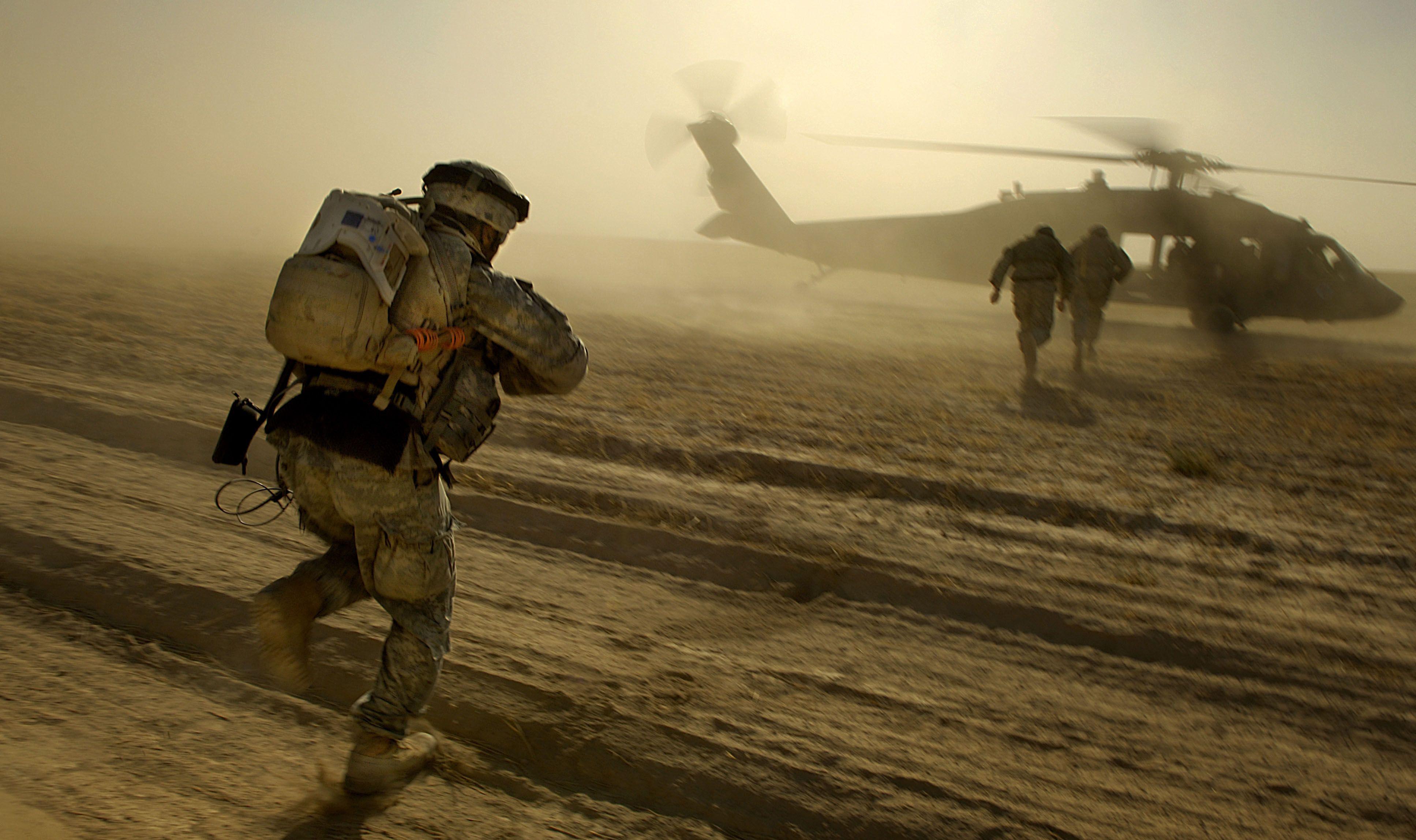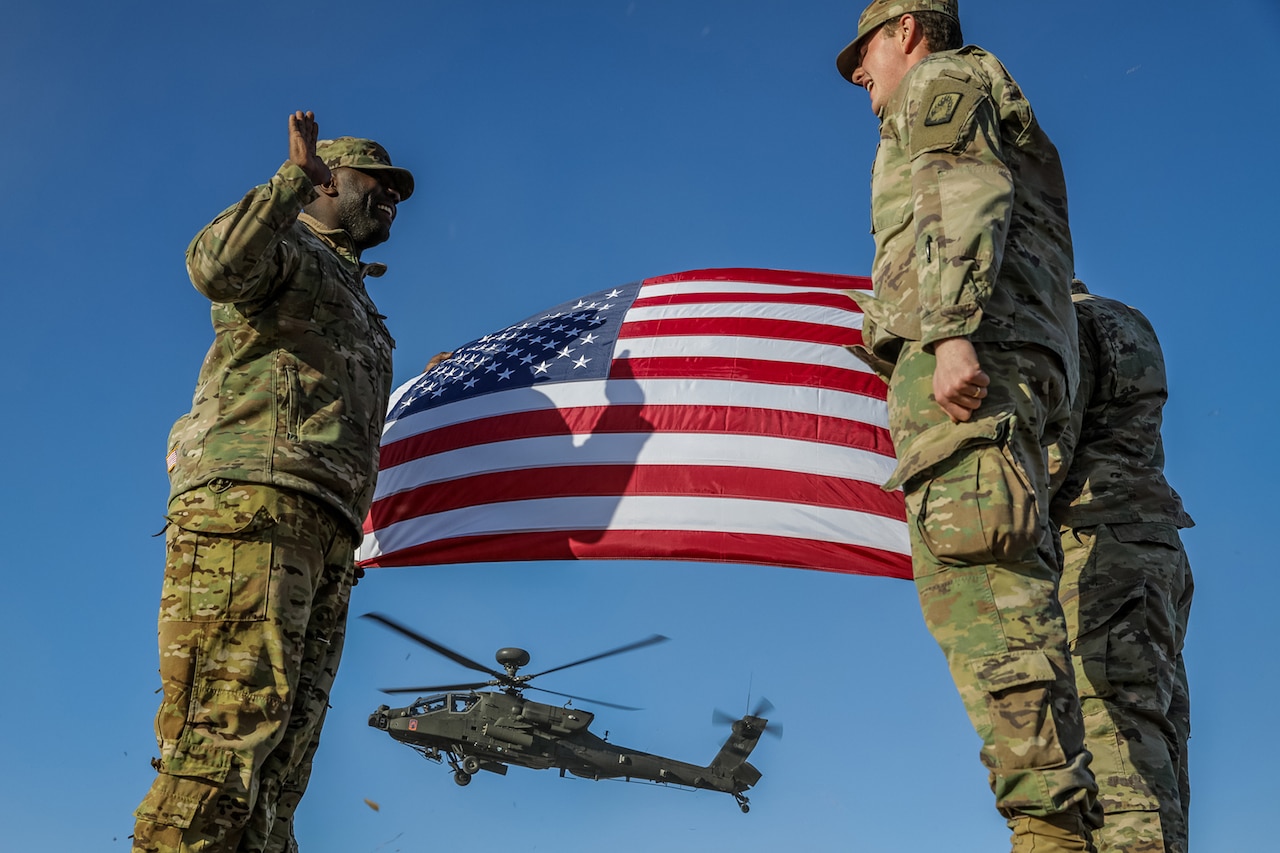The Military Is A Cult - A Closer Look
It's a thought that might make you pause, perhaps even raise an eyebrow, yet the notion that the military could be considered a cult, by some definitions, is a conversation many are having. We're not talking about the kind of groups with wild parties, or very sad, tragic endings, or even substance misuse. No, this idea looks at the actual characteristics that define a cult, and then, you know, sees how they might line up with military life. It feels like a challenging statement, especially when we think about the military's stated purpose, which is to serve and shield a whole country.
On the surface, it might seem really absurd to even suggest that the military, an institution set up to keep a nation safe and serve its people, could be thought of as a cult. But, when you actually take a closer look, some rather striking similarities between the military and what we typically label as cults start to come out. It's a question that sparks a lot of talk, truly, among everyday folks and those who have served.
Today, I believe there are somewhat dangerous signs in our society of a gradual shift, a morphing of honoring those in uniform into what some call the "cult of militarism." This idea, that the military is a cult, is quite provocative and can be controversial, often leading to very heated discussions among people who have been in the service, civilians, and even those who study these things. It's a topic that comes up frequently, actually, and has been debated for a while.
- %C3%A9%C3%A4%C3%A6
- Michael Loftus Children
- Jayshree Gaikwad Web Series Online
- Michael Mathers
- Jayshree Gaikwad Series
Table of Contents
- What Makes a Group a Cult?
- Is the Military a Cult When We Look at Definitions?
- How Does the Military Resemble a Cult?
- Does the Military Really "Tear You Down and Build You Up"?
- Can the Military's Justice System Be Like a Cult's?
- What's the Big Difference Between the Military and a Cult?
- Is This Just a Provocative Idea? The Military is a Cult
- Why Do People Even Ask if the Military is a Cult?
What Makes a Group a Cult?
When we talk about what makes something a cult, the legal definition often points to a "system of religious veneration." But it's not always about religion in the way we usually think about it. It's more about a very strong, sometimes absolute, devotion to a person, an idea, or a set of beliefs. In a way, you know, it's about a group of people giving a lot of their focus and loyalty to something specific. It feels almost like a complete dedication, often to the exclusion of other influences. This focus can be incredibly intense, really, shaping every part of a person's life within the group.
Is the Military a Cult When We Look at Definitions?
By the actual legal explanation of what a cult is, the military is absolutely a cult, at least in some respects. It may not look like some of the classic examples we see with those stories of wild gatherings or, you know, really unfortunate mass events, or even drug use, but it is a cult by the specific wording. The similarities are, well, too obvious to be explained away by simple chance. It’s a matter of how you interpret the core characteristics, and whether those characteristics are present in a structured organization like the armed forces. So, when you actually break it down, the connections can seem quite clear.
How Does the Military Resemble a Cult?
I'm going to go through some of the things that make up a cult and, you know, explain how they might apply to the military. You'll see by the time we get to the end of this list that the connections are just too plain to be dismissed. For example, Daniella, who grew up in the Children of God group, and Mike, who was in Scientology, have talked about how the military, which they were both a part of for many years, feels cult-like to them. They've had their own experiences, and it gives them a unique way of looking at things, really. Their perspectives, while different, often point to similar patterns of group dynamics and influence, which is quite interesting to consider.
Does the Military Really "Tear You Down and Build You Up"?
My mother, who actually went into the military, says they do use some tactics that cults employ. At least, that was her experience, and, you know, it could just be something about her particular branch of service or even the country she served. She said the idea of breaking you down and then building you back up, which is about changing your whole way of being, is a thing that cults often do. My mother even changed her name, which is something some cults also encourage. This process of stripping away individual identity to create a new, group-oriented one is a common thread that can be seen in various types of organizations, and it’s a bit unsettling to think about in this context.
Can the Military's Justice System Be Like a Cult's?
When it comes to how rules are enforced, there's a specific legal system within the U.S. Marine Corps, for example. Now, in cults, there's usually only a closed, internal way of doing justice, and there's no real way to appeal outside of that system, no way to get help from someone on the outside. This lack of outside support or a higher court, you know, is a significant characteristic. While the military does have its own specific rules and ways of dealing with things, some might argue that the internal nature of its justice system, at times, shares some characteristics with the more isolated systems found in cults. It's a subtle point, but one worth thinking about, really, when considering the parallels of the military is a cult.
What's the Big Difference Between the Military and a Cult?
The main difference, you know, lies in the reason for being and what the final outcome is. The military aims to protect a country and keep things orderly through very disciplined actions. Cults, on the other hand, usually want to control and use their members for the benefit of the leader or the group itself. It’s a question of how much control is exercised and what the true intention is, rather than a perfect match. The military, you see, has a very clear, publicly stated goal that serves a wider population, whereas cults often serve a much narrower, often self-serving, agenda. So, it's not an exact match, but more about the extent and purpose, really.
The military is not a cult, many would say. While people who serve in the military may feel a very strong sense of togetherness and dedication to their duty, the military does not quite fit every part of the standard definition of a cult. For example, there's the point that the leader of a cult is not usually held accountable to any outside authorities, which is absolutely not the situation in the military. Military leaders, as a matter of fact, answer to a chain of command and ultimately to the civilian government, which is a very big difference. Religious and lifestyle cults, you know, often act as if they might have to fight, but most never actually do, and none answer to a larger, recognized government body.
Is This Just a Provocative Idea? The Military is a Cult
The claim that the military is a cult is, frankly, quite thought-provoking and can cause a lot of disagreement, sparking very intense conversations among regular people and those who have served. Yet, the question of whether the military is a cult is a complex and often debated one, brought up quite often. When someone says the military is a cult, it certainly gets your attention. It feels like a challenging statement, especially when we think about what the military says its purpose is: to serve and protect a whole country. It seems almost, well, out of place, doesn't it, to connect such an established, formal organization with something often seen as secretive or manipulative. To be honest, debating the smaller details of someone's military background often misses the bigger idea being made here, which is that the "cult of military service" in the United States is a thing, in a way.
Why Do People Even Ask if the Military is a Cult?
It's interesting to consider why this comparison even comes up. Daniella Mestyanek Young, for instance, grew up in the Children of God cult, also known as The Family. Her personal background gives her a unique lens through which to view structured groups. So, you know, when people with experiences like hers look at the military, they might spot similarities that others wouldn't. It’s not necessarily about saying the military is exactly like those other groups, but rather about noticing patterns of behavior, influence, and group identity that echo across different kinds of organizations. The idea is to simply examine these connections, not to make a definitive judgment, but to explore a challenging concept.
I'm not actually saying that the military is a cult, not really. This whole discussion is, you know, a bit tongue in cheek and meant for a good chuckle, in a way. I know that there's the point that says the leader of a cult isn't accountable to any authorities, which is absolutely not the situation in the military. However, the following points aren't all perfectly aligned, but it is, honestly, a little unsettling how close a lot of this is. It's about opening up a conversation and looking at things from a different angle, just to see what comes up. It's about exploring ideas, rather than making a final declaration, and that's what makes it somewhat thought-provoking.
This discussion has explored the idea that the military might share some characteristics with cults, based on specific definitions and personal accounts. We've looked at how the concept of "tearing down and building up" might apply, and considered the internal nature of military justice systems. We also discussed the key differences, particularly the military's public purpose versus a cult's exploitative intent, and the accountability of military leadership. The piece also touched on why this provocative comparison often comes up, drawing on experiences from those who have been in cults and the military. It's a complex topic that sparks a lot of debate, with points on both sides of the argument.
- How Much Is Courteney Cox Worth
- Sean Lew And Kaycee Rice
- Wyclef Jean Net Worth
- Marissa Dubois Feet
- Geneen Wright

HD Military Wallpapers - Top Free HD Military Backgrounds - WallpaperAccess

HD Military Wallpapers - Wallpaper Cave

All-Volunteer Force Proves Successful for U.S. Military > U.S